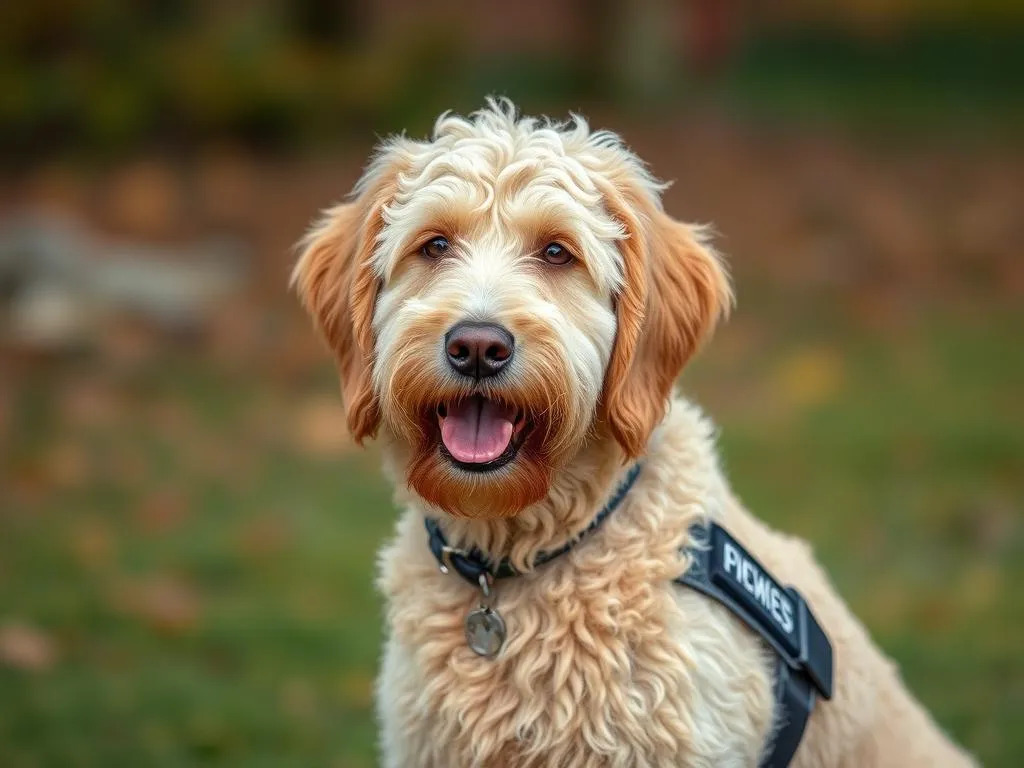
Service dogs play a vital role in assisting individuals with disabilities, offering not only companionship but also specific support tailored to various needs. Labradoodles, a popular hybrid breed known for their friendly demeanor and intelligence, are often considered when thinking about service dogs. Understanding whether a Labradoodle can be a service dog involves exploring their temperament, training, and suitability for the task at hand.
Understanding Service Dogs
Definition of Service Dogs
Service dogs are specifically trained to perform tasks that directly assist individuals with disabilities. According to the Americans with Disabilities Act (ADA), these dogs are defined as canines that have been individually trained to perform tasks for people with disabilities. It is crucial to distinguish between service dogs, emotional support animals (ESAs), and therapy dogs. While service dogs perform specific tasks related to a disability, ESAs provide comfort but are not trained for particular tasks, and therapy dogs are trained to provide comfort in group settings, such as hospitals or schools.
Types of Service Dogs
Service dogs come in various forms, each designed to assist with specific needs:
- Guide dogs help visually impaired individuals navigate their surroundings.
- Hearing dogs alert those who are deaf or hard of hearing to important sounds.
- Mobility assistance dogs assist individuals with physical disabilities, offering support for balance and stability.
- Medical alert dogs can be trained to detect conditions like diabetes or seizures and alert their owners or caregivers.
- Psychiatric service dogs support individuals with mental health conditions, such as PTSD or anxiety disorders, by performing tasks that mitigate their symptoms.
Characteristics of a Labradoodle
Breed Overview
The Labradoodle, a cross between a Labrador Retriever and a Poodle, originated in Australia in the late 1980s. Bred initially for hypoallergenic qualities, Labradoodles come in various sizes—standard, medium, and miniature—and have different coat types, ranging from curly to wavy. This versatility makes them appealing to many prospective dog owners.
Temperament and Behavior
Labradoodles are known for their friendly and sociable nature. They are generally good with children and other animals, making them an excellent choice for families. Their intelligence and eagerness to please contribute to their trainability, which is a crucial factor when considering them for service dog roles. Additionally, Labradoodles have moderate energy levels, requiring regular exercise and mental stimulation to stay happy and healthy.
Health Considerations
Like all breeds, Labradoodles are prone to certain health issues. Common concerns include hip dysplasia, eye disorders, and skin conditions. Their lifespan typically ranges from 12 to 14 years, and proper care, including regular vet visits and a balanced diet, is essential for maintaining their health.
Can Labradoodles Be Service Dogs?
Suitability of Labradoodles as Service Dogs
When assessing whether a Labradoodle can be a service dog, it is essential to evaluate their temperament and behavior traits. Labradoodles’ friendly disposition and intelligence make them suitable candidates for various service roles. However, it is vital to compare them with other breeds commonly used for service work, such as German Shepherds and Golden Retrievers, which are renowned for their reliability and focus.
Training Requirements
Training a Labradoodle as a service dog involves a rigorous process. They must learn specific tasks tailored to their owner’s needs. This includes basic obedience training, socialization, and task-specific training. Early socialization and exposure to different environments are essential for developing a well-rounded service dog. Engaging a professional trainer experienced with service dogs can significantly enhance the training process and ensure the dog meets the necessary standards.
Certification and Legal Considerations
To certify a Labradoodle as a service dog, owners must ensure their dog completes the required training and demonstrates the ability to perform specific tasks. While the ADA does not require service dogs to have formal certification, having documentation from a recognized training organization can help clarify the dog’s status in public settings. Understanding the legal rights of service dog owners is crucial, as they are entitled to access public spaces where pets are not allowed. Misconceptions about service dog certification often lead to confusion, so it’s important to be well-informed.
Pros and Cons of Using a Labradoodle as a Service Dog
Advantages
-
Affectionate and Comforting Nature: Labradoodles are known for their loving demeanor, which can be particularly beneficial for individuals who may feel isolated due to their disabilities.
-
High Adaptability: Their versatility allows them to adapt well to various environments, from bustling cities to quiet homes, making them suitable for different lifestyles.
-
Strong Bond with Owners: Labradoodles often form strong attachments with their owners, enhancing the emotional support they provide as service dogs.
Disadvantages
-
Potential for Distractions: Their playful nature can sometimes be a distraction during training and in public settings, making it essential for owners to maintain a firm hand during training.
-
Grooming and Maintenance Needs: Labradoodles require regular grooming due to their coat types, which can be a commitment for owners.
-
Training Challenges: While they are intelligent, some Labradoodles may exhibit stubbornness, potentially making training more challenging compared to other breeds.
Success Stories
Real-Life Examples of Labradoodles as Service Dogs
Numerous success stories highlight the impact of Labradoodles on individuals with disabilities. For instance, a young girl with autism found comfort and stability through her trained Labradoodle, who helped her navigate social situations and provided a sense of security. Testimonials from service dog owners often emphasize the profound bond formed with their Labradoodle, enhancing their quality of life and independence.
Community Support and Resources
Several organizations specialize in training Labradoodles as service dogs. These organizations provide resources for training, certification, and support for owners. Online communities also exist where owners can share experiences and advice, fostering a supportive environment for those navigating life with a service dog.
Conclusion
In summary, a Labradoodle can be a service dog, provided they possess the right temperament and receive appropriate training. Their friendly nature, intelligence, and adaptability make them viable candidates for various service roles. However, potential owners should consider their individual needs and circumstances, ensuring that both the dog and owner can thrive in a service dog partnership. With the right training, support, and commitment, Labradoodles can significantly enhance the lives of individuals with disabilities.
FAQs
Can any dog be a service dog?
Not every dog is suited to be a service dog. Certain breeds are more commonly successful due to their temperament, trainability, and energy levels. However, with the right training and socialization, various breeds, including Labradoodles, have the potential to serve in this capacity.
How long does it take to train a Labradoodle as a service dog?
Training a Labradoodle as a service dog typically takes several months to a few years, depending on the complexity of the tasks and the dog’s individual learning pace. Consistent training and socialization are key components of this process.
Are there financial assistance programs for service dog training?
Yes, various organizations offer financial assistance programs for service dog training. Researching local and national organizations can help prospective owners find funding opportunities to support their training needs.
What are the best practices for socializing a service dog in training?
Socializing a service dog in training involves exposing them to various environments, people, and situations. Gradual exposure, positive reinforcement, and controlled interactions are essential for developing a well-adjusted service dog. Regular outings to different settings can help the dog become comfortable in various scenarios, ensuring they are ready for public access as a certified service dog.









